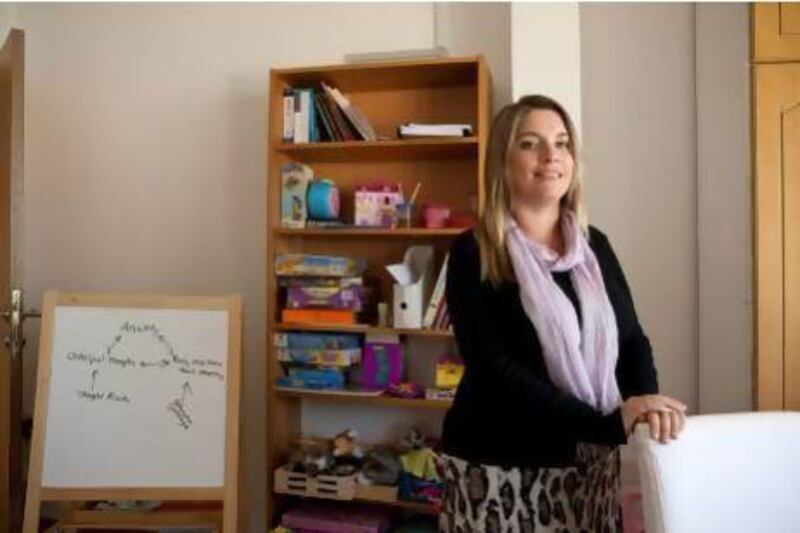A shy, 14-year-old Abu Dhabi girl who rarely spoke to her parents and spent much of her time on her computer met a young man online and admitted to him that she often had suicidal thoughts. He told her that he would follow her to her death.
At the end of last month, the young girl allegedly threw herself out of her window. Her "cyber friend" was charged with abetting her suicide, according to the Abu Dhabi Criminal Court of First Instance.
The anonymity of the internet means that trust and intimacy can develop quickly online. Predators take advantage of this to build relationships with inexperienced young people.
At a summit on tackling online child abuse in Abu Dhabi in December, Ian Quinn, the chairman of the Virtual Global Taskforce and deputy assistant director of US Homeland Security Investigations, highlighted the importance of educating children about online dangers.
"It is vital that we teach our children how to handle the internet," he said. "Some parents may get too comfortable or naive and assume that their child is merely doing homework or chatting with friends on their home computer. Parents have to monitor their children and have conversations with them on the kinds of threats they face online. We have online tools through which parents can educate their children, such as the Virtual Global Taskforce website [www.virtualglobaltaskforce.com]."
What parents mustn't do, however, is ban the internet for a technically savvy generation. Social networking, for example, can be very helpful. "It can build a child's sense of self and resilience," says Amy Bailey, a clinical psychologist at kidsFIRST Medical Center (www.kidsfirstmc.com). "Some young people chat through such sites to support each other with their homework. It is imperative, however, that you monitor who your children befriend and check out how your child knows them, perhaps making a rule that they cannot accept new connections without consulting with you first."
Online predators find children through social networking blogs, chat rooms, instant messaging, email, discussion boards and other websites. They seduce their targets through attention, affection and even gifts. They know the latest music and hobbies likely to interest kids.
Unfortunately, Bailey says, certain children are more likely to be approached by predators. "If children do not receive satisfaction with their peer relationships within everyday life, they are more likely to seek connections through virtual resources. Children who struggle with social skills and interactions can find the internet an easier forum to relate to others but their emotional need for friendship can make them vulnerable to predators."
• Talk to your children about the dangers posed by the internet and tell them to speak to you if they become worried or concerned. Explain that it is your job as a parent to keep them safe.
• Point out that since you cannot see a person online you don't necessarily know who they are. They might pretend to be someone they're not; for example, a man could pretend to be a teenage girl.
• Use parental control software that is built into operating systems such as Windows (go to the control panel to set up a new account and then install parental controls) or that you can download for free, such as Windows Live Family Safety (www.windows.microsoft.com).
How to minimise your child's risk
• Family Safety will only let your kids talk to the people you allow, and help keep them off websites you don't want them looking at. You can also set time controls on internet usage and log computer activity. Remember, however, no software will ever be a substitute for being an active parent.
• Children should have gender-neutral screen names and should never give out personal information online.
• Tell your children to never respond or send an email to new people they meet online. Explain it's OK not to answer every email and instant message.
• Put the computer where the whole family can see it, not out of sight in a bedroom. But remember that your children have other means of accessing the internet, such as phones and game-playing devices.
• Follow age limits on social networking websites. Most social networking sites require that users be 13 and over.
• Young children should not use chat rooms. The dangers are too great. As children get older, direct them towards well-monitored kids' chat rooms. Monitor the chat areas to see who your kids are talking to and what kind of conversations are taking place.
• Instruct your children to never leave the chat room's public area. Many chat rooms offer private areas where users can have one-to-one chats with other users. Chat monitors can't read these conversations. They are often referred to as 'whisper' areas.
• Insist children never agree to meet someone they've met online without your permission.





